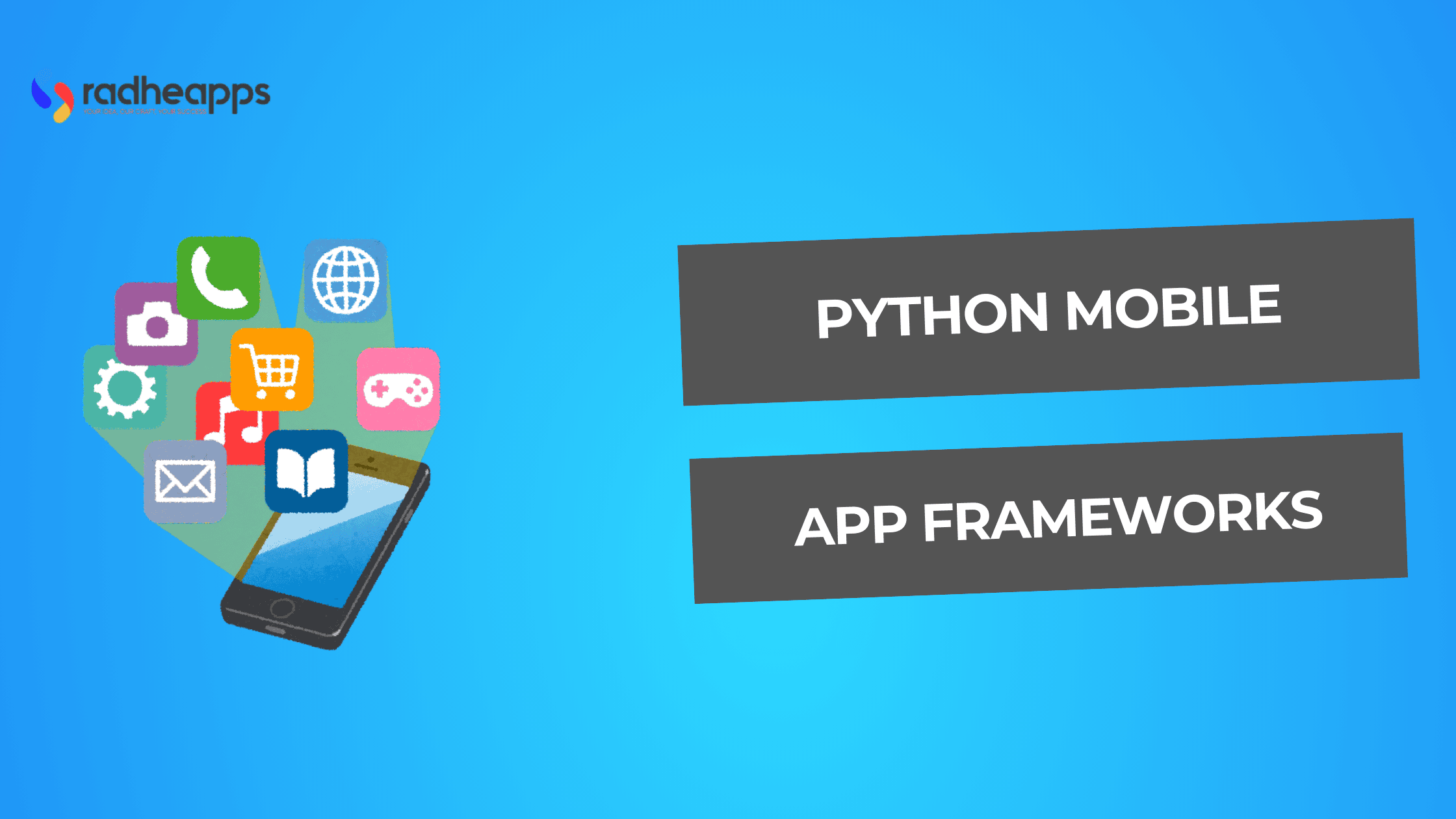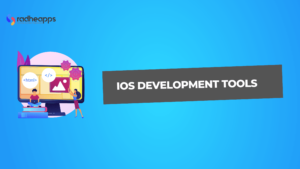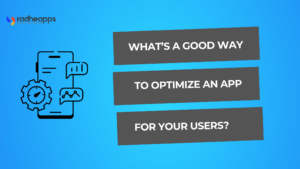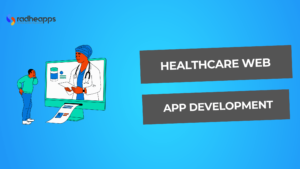Mobile app development has significantly transformed over the years. Python has played a crucial role in this industry. Initially developed for web development, data science, and automation, it has become an excellent choice for mobile app development.
Python frameworks allow developers to build high-performance, cross-platform accessible applications without the hassle of platform-specific languages such as Swift or Kotlin.
Why is mobile development based on Python on the rise? Python’s syntax is very similar to that of the English language; it is small and can quickly be learned. Therefore, developers focus on building robust functionality instead of complex code.
More importantly, Python frameworks like Kivy, BeeWare, and PyQt enable cross-platform compatibility with a single codebase. They provide support to build applications that run on iOS and Android to reduce the time and cost of development.
At RadheApps, we specialize in transforming ideas into high-performing, scalable applications powered by Python. Whether you need a cross-platform app with Kivy, a native app with BeeWare, or a scalable application with Django, our team is an expert in delivering seamless development from start to finish.
Python frameworks provide ample scope for developing feature-rich apps for any business category. We have delivered successful applications with an open-source Python library allowing quick mobile app development for Android and iOS devices.
Ready to have your dream application? Connect with us today to make a structured plan.
OR
Book a consultation to get the best Python frameworks designed for mobile development and their benefits.
What are Python Mobile App Frameworks?
Python mobile app frameworks are tools for creating mobile applications through Python language-based development tools. These frameworks allow programmers to build, test, and deploy various apps on iOS and Android using handy libraries and APIs.
Developers do not need any expertise in Swift or other programming languages. It also ensures compatibility across various platforms using a single codebase, which requires less effort and time in development.
Most Python mobile frameworks provide an event-driven programming model – GUI toolkit. They also offer access to mobile application features, such as cameras, GPS, and touch. Some frameworks improve performance with hardware acceleration.
Since Python is easy to learn, app development is faster and more efficient. It will allow developers to concentrate on the app’s logic, not the syntax. Also, Python has many built-in plugin libraries, so you can quickly bring in ML, data, and more in mobile apps.
Why Use Python for Mobile App Development?
Python is popular in mobile app development because of its versatility and extensive frameworks. Python is basically a web app development framework, but its mobile frameworks help to create scalable and cross-platform applications efficiently. Some of the common benefits of Python are:
- Python provides clean syntax and human-readable code, which makes mobile application building and maintenance easier.
- Python allows you to develop faster using its concise code structure.
- By offering many built-in libraries for tasks like AI, ML, and data processing, Python has become an ideal language for intelligent apps.
- A vast developer community collaboration provides extensive documentation, tutorials, and troubleshooting assistance.
| Read more: Find out the best mobile app development companies. |
Cross-platform Compatibility
Python-based frameworks like Kivy and BeeWare allow developers to create apps that run seamlessly on iOS and Android with a single codebase. This reduces development costs and ensures consistency across multiple devices. Learn how to find the best cross-platform app development companies.
Scalability and Flexibility
Python is highly scalable and suitable for both small and large-scale enterprise applications. The seamless integration of technologies like cloud computing, AI, and blockchain also ensures future enhancements.
Key Features of Python Frameworks for Mobile Development
Python plays a pivotal role in mobile app development. Its top three key features are:
Simplified Coding Structure
Simplified, clean, and concise syntax reduces the difficulty of writing and maintaining code. Its object-oriented approach offers dynamic typing so that developers can focus on functionality and faster development rather than complex code.
Integration with Third-party Libraries
Python is popular for its seamless integration with third-party libraries and APIs. This allows developers to enhance applications with emerging features such as machine learning, data analytics, cloud services, and payment gateways.
Support for Native and Hybrid Apps
Python mobile frameworks support the development of both native and hybrid applications. Some Python frameworks allow direct access to platform-specific functionalities to ensure a native look and feel. This flexibility makes Python a feasible tool for diverse mobile app development.
Top Python Frameworks for Mobile Development
Here are the insights on the top Python framework tools.
Kivy
Kivy is an open-source Python framework designed to develop cross-platform applications for Windows, macOS, Linux, iOS, and Android.
Open-source and Cross-platform Support
Kivy is a free, open-source Python development tool. It allows developers to build applications for cross-platform devices. Its single codebase capabilities enable seamless deployment on desktop and mobile devices. Thus, it is a powerful choice for developers who want to reach a vast audience without rewriting code.
Built-in Multi-touch Functionality
This tool is optimized for touch-based applications and offers built-in support for multi-touch gestures. This makes it an excellent choice for developing interactive apps for games and media players. Its event-driven architecture ensures smooth and responsive user interactions.
BeeWare
BeeWare is a collection of tools that lets you write native applications for mobile and desktop devices.
Native Look and Feel for iOS and Android
Unlike several cross-platform frameworks that use their own UI components, BeeWare enables developers to build applications with a native look and feel using native widgets. Because of this, there will be a constant user experience on iOS and Android.
Simple API for Mobile UI Development
BeeWare’s Toga library provides a simple API for designing mobile UIs in Python. Programmers can make tidy and intuitive layouts without handling complex platform-specific coding.
PySide
PySide is the official Python binding for the Qt framework and has excellent UI development tools.
Official Python Binding for Qt Applications
The Qt Company maintains PySide and provides access to Qt’s complete feature set. This makes it more efficient to create professional applications by using Qt’s UI components for the front-end and back-end tools for the back end.
Ideal for Building High-performance Mobile Apps
Built with Qt’s C-based architecture, PySide delivers excellent performance. Make it ideal for building high-performing mobile applications. This makes building resource-intensive mobile apps that need advanced graphics rendering, smooth animations, and complex UI elements possible.
PyQt
Another Python binding for the Qt framework is PyQt. PyQt is a powerful tool for UI development.
Extensive Set of Libraries for UI Development
PyQt comes with a vast library of UI elements. It can help you design a complex user interface with minimal work. It also offers features like drag-and-drop functionality, custom widgets, and stylesheets.
Cross-platform Compatibility
PyQt apps work well on all platforms, including Windows, macOS, Linux, iOS, and Android. Developers can use the same code for multiple devices without making significant changes, so there is no need to write the code repeatedly, saving time and effort.
Flask for Mobile App Backends
Flask is a lightweight web framework for building mobile app backends and APIs.
Lightweight and Easy to Set up
Flask is an ideal framework for web apps and mobile apps. It is minimalistic and requires minimal configuration, so it is an excellent choice for developers who need a quick and efficient backend for their mobile applications.
Ideal for API-driven Mobile Apps
It is simple enough to build on quickly and efficient enough to modify when necessary. Many mobile applications rely on APIs to fetch and send data. Flask has built-in support for REST APIs, which helps developers quickly build back-end services that can work with mobile front-end applications.
Django for Scalable Mobile Applications
Django is a high-level Python framework known for its security, scalability, and ease of use.
Secure and Robust Backend Development
Django provides the best security support and built-in protection against common threats like SQL injection, XSS, and CSRF attacks. This makes it the best choice for mobile application development, which requires secure authentication and data handling.
Pre-built Components for Faster Deployment
Django offers built-in tools such as an admin panel, ORM (Object-Relational Mapping), and authentication modules. These features allow developers to build and deploy scalable mobile applications quickly.
How to Choose the Right Python Framework for Your Mobile App
The proper Python framework can be selected according to the app’s complexity, platform requirements, and long-term scalability goals. Consider these factors before choosing the Python framework for your mobile app.
Compare Framework Capabilities
Different Python frameworks offer different features according to their capabilities. Some provide cross-platform support, while others have UI components and access to native functionalities. Consider whether you need a complete native apps framework, hybrid apps, or a cross-platform one.
For example, if you need a UI-heavy app, you can choose a framework such as Kivy or BeeWare.
Evaluate Performance and Scalability
High performance is essential if your mobile application requires extensive real-time processing or computation. Choose a framework that offers smooth rendering, well-optimized memory consumption, and timely execution.
Also, evaluate scalability and whether the framework can accommodate growth, cloud integration, and user growth without significant coding. Consider these factors before selecting a mobile app development company.
Consider Community Support and Documentation
A supported framework that is proven with substantial documentation and an active community can help you quickly troubleshoot ongoing issues. Frameworks that are open source, frequently updated, and have a large developer community offer efficient support, bug fixes, and new features.
Best Practices for Mobile App Development With Python
Developers can create user-friendly and high-performing mobile applications by using these best practices in Python.
Optimize App Performance
Performance is everything for a mobile application. Use lightweight frameworks, reduce memory usage, and optimize code execution. Whenever possible, leverage caching, asynchronous programming, hardware acceleration and other good ways to optimize the app. Reducing unnecessary computation in the main thread can also improve UI rendering.
Ensure a Seamless User Experience
To get a more extended app run time by users, provide a seamless experience and easy-to-navigate user interface. Follow platform-specific design guidelines to give a native feel on both iOS and Android. Make the app easy to use, reduce time delays, and ensure its layout is responsive on different screen sizes.
Test and Debug Effectively
Thorough mobile app testing makes an app stable and reliable. Automated testing tools like PyTest or Unittest can detect and fix bugs early. Before the release, conduct usability testing, stress testing, and debugging to gather feedback, assess performance, and optimize regularities.
Conclusion
Python has become widely popular for its versatility. It is an excellent choice for developers who want to build mobile applications. These frameworks allow developers to build scalable, high-performance apps with minimum effort.
You can use Kivy for cross-platform support, BeeWare gives a native feel, Django and Flask for complete backends. Either way, Python frameworks are enough to deliver an exceptional mobile app experience.
Mobile technology is rapidly transforming, and businesses must adapt with efficient, scalable, cost-effective solutions. Python has libraries for every project and a vibrant community to ensure ongoing support and performance management.
At RadheApps, we transform ideas into world-class mobile apps. From concept to deployment, our crew guarantees the smooth execution of Python’s top frameworks.
We specialize in Python development and are experts in delivering business-themed applications faster. From designing interactive UIs using built-in plugins to developing a single codebase, we help solve your maximum development problems.
Are you looking to launch your next mobile app? Radheapps can be a reliable and resourceful development partner! Contact us today and start building smarter.
Frequently Asked Questions (FAQs):
Which Python Framework is Best for Mobile App Development?
Kivy is used for cross-platform UI applications, BeeWare is used for native mobile and desktop apps, and Django is used for building backends and APIs that can be used with other front-end frameworks.
Can Python be Used to Build Cross-Platform Mobile Apps?
Yes, with frameworks like BeeWare (specifically Toga), you can achieve a native look and feel for your cross-platform mobile apps built with Python.
Is Django Suitable for Mobile App Backend Development?
Django is well-suited for enterprise application development that can accommodate growing user bases and traffic.
What are the Limitations of Using Python for Mobile Apps?
Python’s disadvantages include its slow speed and heavy memory usage. It also lacks support for mobile environments, database access, and multi-threading.




